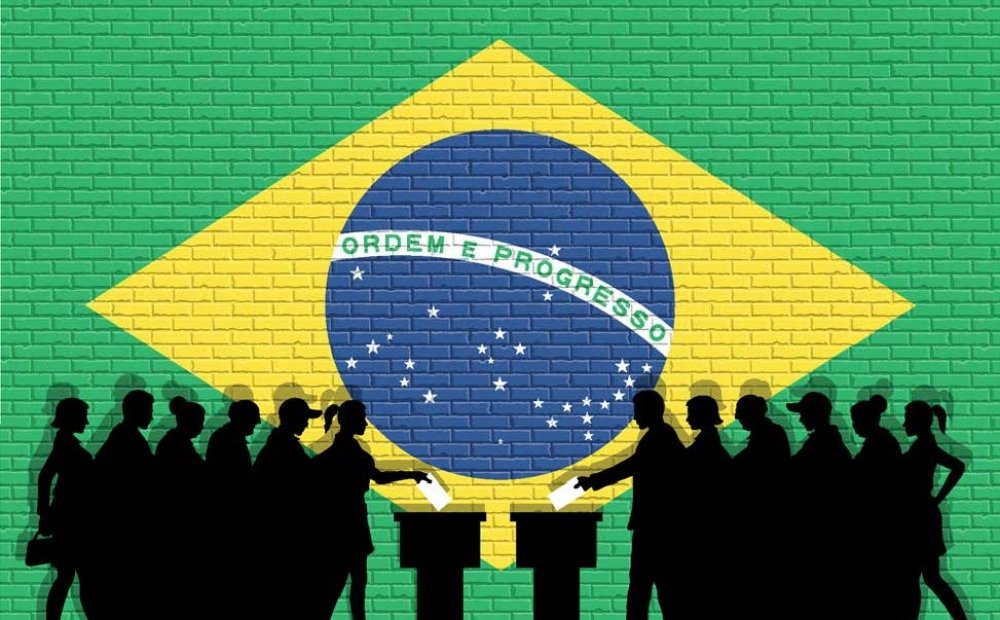Teleconference | Brazilian Elections: Results and Expectations

The Brazil Institute, Brazil-U.S. Business Council, and the Atlantic Council hosted a telephone discussion about the results of the first round of voting in the Brazilian elections on October 7.
This event brought together stakeholders in Washington, opinion-makers from universities and think tanks, and the business community from both Brazil and the United States to analyze Brazil’s economic and political outlook and priorities for the bilateral agenda.
Summary
By Valentina Sader, courtesy of the Adrienne Arsht Latin America Center, Atlantic Council
On Tuesday, October 9, only two days after the first round of voting in Brazil, the Atlantic Council’s Adrienne Arsht Latin America, the Brazil-US Business Council, and the Brazil Institute at the Woodrow Wilson International Center for Scholars hosted the conference call “Brazilian Elections: Results and Expectations” to discuss the impact of the outcomes ahead of second-round voting on October 28. Paulo Sotero, director of the Brazil Institute at the Woodrow Wilson International Center for Scholars, kicked off the call with opening remarks, and Renata Vasconcellos, senior director of the Brazil-US Business Council, moderated the discussion between Ricardo Sennes, nonresident senior fellow at the Atlantic Council’s Adrienne Arsht Latin America Center, and Monica de Bolle, director of the Latin American Studies and Emerging Markets Department at Johns Hopkins University (SAIS). Sotero began the discussion by highlighting electoral results that saw an end to the Rousseff-Temer leadership and brought a larger than expected rate of renewal in Congress. Vasconcellos commented on the remarkable percent difference between Partido Social Liberal (PSL) candidate Jair Bolsonaro, who received around 46 percent of the votes, and Workers’ Party (PT) candidate Fernando Haddad, who received over 29 percent. This difference, she noted, was surprising even in Brazil, where presidential elections tend to head to a runoff. The numbers indicated Brazilians voted in large part against the main political parties, a push against the perceived establishment in the country. Ricardo Sennes referred to Bolsonaro’s high rate of support as a ‘phenomenon.’ He noted Bolsonaro’s popularity is reflective of a new balance of power in the Brazilian system, where for the first time since 1989 the Partido da Social Democracia Brasileira (PSDB) did not represent the right in the political ideological spectrum. With Geraldo Alckmin, the PSDB presidential candidate, only receiving 4.76 percent of the votes, Sennes noted Bolsonaro effectively captured the center and center-right votes as Brazilians pushed against a Workers’ Party victory. Votes cast in terms of runoff predictions increased Bolsonaro’s support from around thirty five percent to the forty six percent he received in the first round, he noted. At the subnational level, the Brazilian Congress welcomed a variety of new candidates into the fold. Many politicians in office during the past administrations were not reelected, including former President Dilma Rousseff, who ran for a Senate seat in the state of Minas Gerais. Presidential frontrunner Jair Bolsonaro’s party, the Partido Social Liberal (PSL), gained new representation in Congress, as did new parties like the Partido Novo. With new parties voted into Congress, Sennes noted that Congressional fragmentation will likely make it more difficult for Brazil’s next president to build coalitions and effectively govern. Pivoting the discussion to the impact of first-round results on Brazil’s economic outlook, de Bolle emphasized that neither Bolsonaro nor Haddad have feasible and detailed economic plans. She argued both plans will need greater coherence and clarity. As markets reacted in favor of Bolsonaro following the Sunday vote, de Bolle expressed surprise, arguing market confidence in Paulo Guedes, Bolsonaro’s chief economic advisor, is misplaced if the Bolsonaro campaign is not able to provide a more detailed economic position. In wrapping up the conversation, Ricardo Sennes commented that social media, in particular the spread of disinformation, as well as the engagement of the evangelic church and the active participation of judiciary agencies in the elections represented new trends in the Brazilian electoral process. As we look ahead to the second round of voting, other presidential candidates that did not make it to the second round will have valuable influence, as voters are still unsure about how to cast their ballots.
Hosted By

Brazil Institute
The Brazil Institute—the only country-specific policy institution focused on Brazil in Washington—aims to deepen understanding of Brazil’s complex landscape and strengthen relations between Brazilian and US institutions across all sectors. Read more
